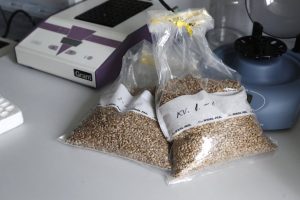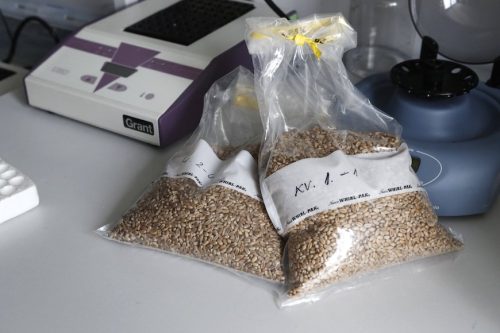By Fredrick Nzwili | Catholic News Service
NAIROBI, Kenya (CNS) — As Kenya lifted a ban on the open cultivation of genetically modified crops, some Catholic bishops expressed reservations about the technology, citing ethical concerns about the farming and consumption of the foods.
At a Cabinet meeting in Nairobi Oct. 3, the government ended the November 2018 prohibition on open cultivation of the crops and the importation of foods and animal feeds produced through genetically modified organisms.
The action came as Catholics, other Christian groups and relief agencies moved to aid millions of people suffering drought in several arid and semi-arid areas. In September, agencies warned that famine was at the doorstep, especially in northeastern Kenya, near Somalia.
“It is not about rejection or acceptance. It is about understanding the ethical issues around GMOs,” Bishop Wilybard Kitogho Lagho of Malindi told Catholic News Service. “The timing is wrong. Why wait to fix an issue when people are most vulnerable? That would be open to manipulation.”

At least 4.2 million people in Kenya are affected by the drought — the worst in 40 years, according to the U.N. Between March and June, more than 200,000 severely malnourished children in the drought-affected region reportedly faced a threat to their lives.
Bishop Lagho told CNS the ethical concerns about the technology would have come out in the open if there had been public comment on the issue before the lifting of the ban.
“We already know there are some implications. Once GMO seeds are planted, the farmer must always go to the market to buy the seeds for the next planting season. That does not give the peasant farmer a leeway to compete favorably with the multi-nationals,” said the bishop.
Bishop Joseph Maluki Mwongela of Kitui said he was seeking more information from experts on the matter. His diocese is one of those most affected by drought.
The cultivation, import and consumption of genetically modified foods have drawn heated debates among scientists, politicians and activists in Kenya. Those who favor the crops claim they would lead to higher yields, reduce pesticide use and provide more nutritious foods.
In the past, some bishops have told people to eat the foods to fight food shortages resulting from persistent droughts.
But Bishop Lagho said the recurrent droughts have been caused by climate change, resulting from carbon dioxide pollution of the atmosphere by industrialization. He said there was international pressure for the legalization of GMOs to possibly beat food shortages arising from droughts.
However, that option “does not allow us to discuss and address the root causes of the persistent droughts,” he said.
Father Fredrick Wafula, who oversees Caritas in the northeastern Kenya diocese of Garissa, said there is little information about genetically modified foods, their production and consumption among ordinary people.
“With the droughts, we need to produce a lot of food. We are familiar with organic farming methods, but we have very little knowledge about GM technology. We don’t know how they would impact our environment and their impact on people’s health,” said Father Wafula, adding that ordinary people must be educated about the technology so that they can make choices.
In the initial ban, Kenya had cited safety concerns while pointing to a study linking cancer in rats to consumption of genetically modified food.
But the U.N.’s World Health Organization says genetically modified food safety should be assessed case by case, since each GMO is created in a different way.






















